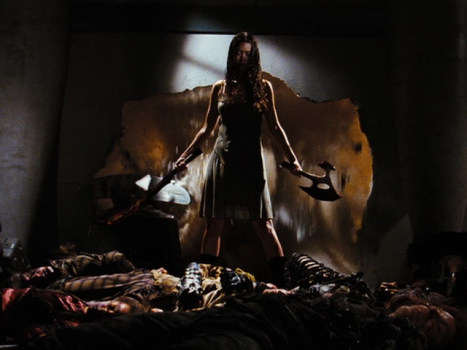Last night, I sat down to watch the new film version of Much Ado About Nothing, which was directed by Joss Whedon. I wasn’t entirely sure what to expect – here is one of my favourite directors, directing my favourite Shakespeare play, and yet as far as I have seen, it has not received the best ratings. The ratings are not the worst, to be sure, but at three and a half stars, I feel that I should be able to expect more from Mr Whedon.
Of course, this seems to have been a little bit of a departure for the director. I have not seen absolutely everything he has ever directed or created in general, but the things he is most famous for – Buffy the Vampire Slayer, Firefly, The Avengers, etc – are all either science fiction, fantasy, or a mixture of both. Whedon is also especially good at two things – witty and interesting dialogue, and finding excellent choreographers for fight scenes. Since he chose to stick to Shakespeare’s script, and Much Ado is almost completely lacking in physical conflict, there does not seem to have been much room for Whedon to add his own style.
Much Ado About Nothing is one of Shakespeare’s romances. Don Pedro, the Prince of Aragon, comes to the house of Leonato following a battle. Two of his officers, Claudio and Benedick, are already known to Leonato and the ladies of the house, Leonato’s daughter Hero and his niece Beatrice. Claudio sets eyes on Hero and falls heartily in love with her, and following a small amount of confusion obtains Leonato’s permission to marry her. Benedick and Beatrice have both sworn against love and marriage, but through a cunning plan carried out by the Prince they are tricked into declaring love for each other. The force for bad in this story comes through the Prince’s brother, Don John, who is intent on messing things up for the Prince and chooses to ruin Claudio’s marriage since the Prince had encouraged them to wed.
I just have to say, at this point, that the main reason I love Much Ado About Nothing is because of Beatrice. As I said before, she has sworn off marriage, and she declares this in beautifully witty ways. She is a devastatingly intelligent character (apart from the fact that she is tricked into falling in love), and despite being tricked into falling in love with Benedick, she is shown as remaining strong and having a fair amount of power within the relationship.
 Generally, I think the problem with Joss Whedon’s version of the play is that he changes the setting, without changing much else. His version is in black and white, and the characters appear to all be a part of the mafia or something similar, but I don’t feel this really brought much to an understanding of the story. Where Baz Luhrmann decided to bring Romeo and Juliet up to date and used it as an opportunity to make the audience consider, for example, how violent young men never really change over the course of history, Whedon’s version of Much Ado About nothing just seemed very slow-moving and the updating of it did not really go very far.
Generally, I think the problem with Joss Whedon’s version of the play is that he changes the setting, without changing much else. His version is in black and white, and the characters appear to all be a part of the mafia or something similar, but I don’t feel this really brought much to an understanding of the story. Where Baz Luhrmann decided to bring Romeo and Juliet up to date and used it as an opportunity to make the audience consider, for example, how violent young men never really change over the course of history, Whedon’s version of Much Ado About nothing just seemed very slow-moving and the updating of it did not really go very far.

